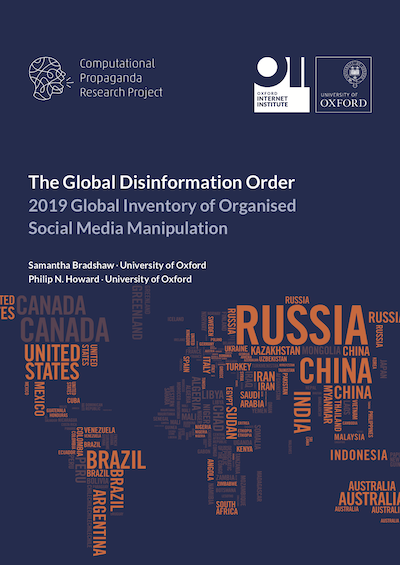
Samantha Bradshaw
Former Research Assistant
Samantha left the OII to become Assistant Professor at American University. She specialises in computational propaganda, social media and democracy, human rights, and Internet policy

Computational propaganda has become a normal part of the digital public sphere. States and parties use ‘cyber troops’ to spread political propaganda, pollute the digital information ecosystem, and suppress freedom of speech and freedom of the press.
Through original media analysis, a literature review, case studies, and expert consultation, this report examines the evolving tools, capacities, strategies, and resources employed by these cyber troops. It shows the sheer pervasiveness of digital manipulation, with the authors identifying 70 countries deploying tactics including ‘bots’, data harvesting, and trolls. Aimed at diverse ends including foreign influence, repression, and misinformation, these tools now shape public life. The authors argue that, while manipulation of public opinion over social media remains a critical threat to democracy, properly used, social media can be a force for good creating a space for public deliberation and democracy to flourish.
